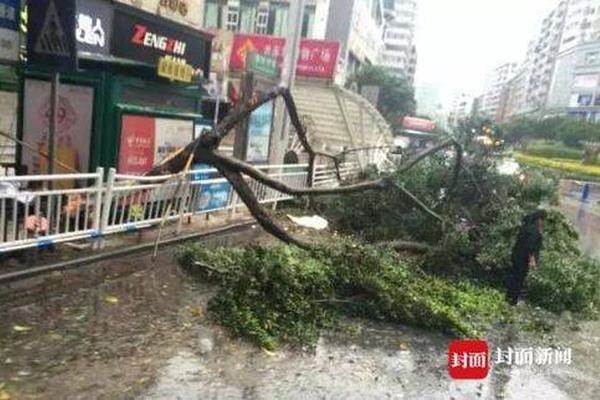A vast swamp forest in Central Africa contains enough carbon to equal two decades' worth of U.S. fossil fuel emissions,Watch Taming A Sex Man Online scientists have found.
The Congo Basin peatland -- an area larger than New York State -- has accumulated around 30 billion metric tons of carbon over the last 11,000 years, according to a study published Wednesday in the journal Nature.
The discovery makes the fate of this vast carbon sink an important consideration for climate projections and land conservationists.
A team of U.K. and Congolese researchers spent three years roaming the Cuvette Centrale peatland to find samples of peat to test in their labs. They also analyzed satellite data to estimate the amount of carbon stored in the soil.
Five years ago, most scientists weren't even aware of the 56,000-square-mile swamp, which is now considered the world's largest tropical peatland.
 Original image has been replaced. Credit: Mashable
Original image has been replaced. Credit: Mashable  Original image has been replaced. Credit: Mashable
Original image has been replaced. Credit: Mashable "The sheer expanse of these peatlands makes Central Africa home to the world's most extensive peatland complex," Greta Dargie, a geologist at University College London and co-author of the Nature study, said in a statement.
"It is astonishing that... discoveries like this can still be made," she said.
Peatlands are comprised of partially decomposed, wet plant material that piles up over thousands of years. Peat soil covers about 3 percent of the Earth's surface, but it contains more carbon than is stored in all the plants and trees worldwide.
Because they absorb and lock in so much carbon, the destruction of peatlands poses a significant threat to the climate.
In Indonesia and Malaysia, where farmers are draining and clearing peatland to make way for palm oil plantations, enough carbon is escaping into the atmosphere every year to equal emissions from nearly 70 coal plants, according to World Resources Institute.
In 2015, massive peatland fires in Indonesia made the country the world's fourth-largest greenhouse gas emitter that year.
 Original image has been replaced. Credit: Mashable
Original image has been replaced. Credit: Mashable Peatlands can also dry out naturally because of declining rainfall, which is happening more frequently because of human-driven climate change.
"If the Congo Basin peatland complex was to be destroyed, this would release billions of tonnes of carbon dioxide into our atmosphere," Simon Lewis, a professor at the University of Leeds in England and a study co-author, said in a statement.
So far, however, the Cuvette Centrale peatland remains relatively intact and undisturbed.
The swamp forests are extremely remote and difficult to access, and many local communities depend on the forest system's rivers and streams for fishing and sustenance, said Emma Stokes, who directs the Central Africa program for the Wildlife Conservation Society (WCS).
"There's a certain natural protection already afforded to these areas," she told Mashable by phone from Brazzaville, the Republic of Congo's capital city.
 Original image has been replaced. Credit: Mashable
Original image has been replaced. Credit: Mashable WCS works with the Republic of Congo to manage the Lac Tele Community Reserve, a legally protected peatland that covers about 1,700 square miles and has one of the world's highest densities of western lowland gorillas. The government is also considering expanding the reserve to include an adjacent 1,930-square-mile area.
Stokes said Wednesday's study on the peatlands carbon content could play a crucial role in shaping the government's future land-use development plans or economic decisions.
"We're in a good position now," she said. "But there's certainly always a risk."
(Editor: {typename type="name"/})
 Exceptionally rare radio sources detected in the distant universe
Exceptionally rare radio sources detected in the distant universe
 Best Bluetooth tracker deals: Save up to 43% at Amazon
Best Bluetooth tracker deals: Save up to 43% at Amazon
 Best robot vacuum deal: The Roomba j7 is 50% off at Amazon — a new all
Best robot vacuum deal: The Roomba j7 is 50% off at Amazon — a new all
 Things to do on Valentine's Day: 7 places to hang out online
Things to do on Valentine's Day: 7 places to hang out online
 NYT Strands hints, answers for April 23
NYT Strands hints, answers for April 23
Inside the Murky Process of Getting Games on Steam
Explore your future climate using this slick interactive tool, while you still can
 The Trump administration is steadily removing and revising climate change-related resources on gover
...[Details]
The Trump administration is steadily removing and revising climate change-related resources on gover
...[Details]
Dude filming a snake watches it slither right into his house
 There's always that one person who seems to always leave the door open.Redditor JRM2 discovered he h
...[Details]
There's always that one person who seems to always leave the door open.Redditor JRM2 discovered he h
...[Details]
Meghan Markle and Prince Harry launch rebranded site
 Prince Harry and Meghan Markle are back with a relaunched website, pivoting Archewell.com to Sussex.
...[Details]
Prince Harry and Meghan Markle are back with a relaunched website, pivoting Archewell.com to Sussex.
...[Details]
Parental Controls: How to Lock Down Your Kids' iOS Devices
Tesla Model Y refresh might not be happening this year
 The long-rumored refresh of Tesla's Model Y might not happen in 2024 after all. This is according to
...[Details]
The long-rumored refresh of Tesla's Model Y might not happen in 2024 after all. This is according to
...[Details]
Best robot vacuum deal: The Roomba j7 is 50% off at Amazon — a new all
 SAVE $302:As of Feb. 14, the iRobot Roomba j7 is $297.99, down from $599.99, at Amazon. That's a 50%
...[Details]
SAVE $302:As of Feb. 14, the iRobot Roomba j7 is $297.99, down from $599.99, at Amazon. That's a 50%
...[Details]
New campaign brings back the voices of gun violence victims to ask congress for change
 The fight for national gun reform — a cause that has galvanized young voters and become an org
...[Details]
The fight for national gun reform — a cause that has galvanized young voters and become an org
...[Details]
Musetti vs. Diallo 2025 livestream: Watch Madrid Open for free
 TL;DR:Live stream Musetti vs. Diallo in the 2025 Madrid Open for free on RTVE. Access this free stre
...[Details]
TL;DR:Live stream Musetti vs. Diallo in the 2025 Madrid Open for free on RTVE. Access this free stre
...[Details]
NASA nixes plan to put astronauts on the 1st mission of its mega
 Well, that was fun, er, nerve-wracking while it lasted. After months of study, NASA has decided that
...[Details]
Well, that was fun, er, nerve-wracking while it lasted. After months of study, NASA has decided that
...[Details]
Hidden Siri Commands and Unusual Responses
Donald Trump's very own staff member handed him fake news. And Trump believed it.

接受PR>=1、BR>=1,流量相当,内容相关类链接。